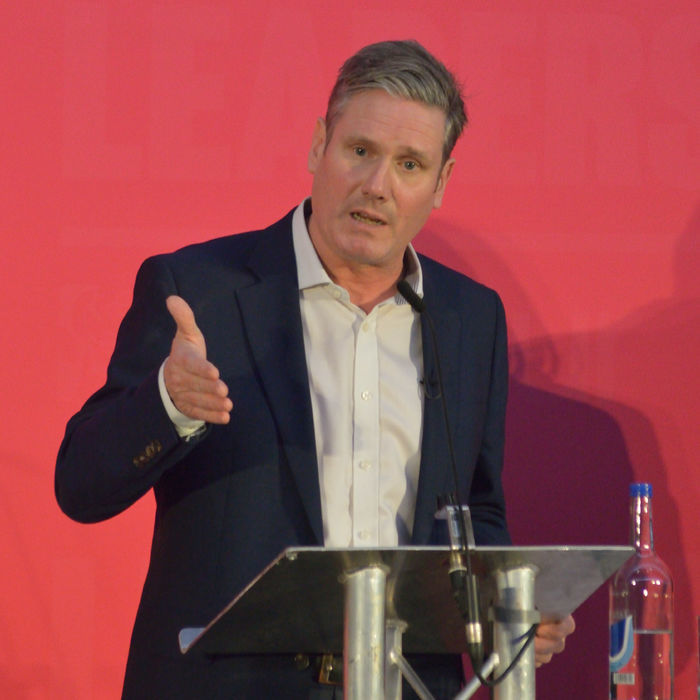Cambridge Rape Crisis Centre defends recruitment of “self-identifying” women following transphobic backlash
The Centre says it will continue to seek a “diversity of volunteers” while safeguarding the women and girls who use its services

The Cambridge Rape Crisis Centre (CRCC) has confirmed that it will continue to recruit trans* volunteers, despite a transphobic backlash from self-declared trans-exclusionary radical feminists (TERFs) on Twitter.
After receiving abuse from TERFs on Twitter, the CRCC was forced to delete its tweets from the 9th July which advertised volunteering roles for “self-identifying women” for its helpline and email support team. Among those denouncing the Centre was Conservative peer Emma Nicholson, who has previously been accused of homophobia, transphobia and racism.
In a statement to Varsity, the Centre confirmed that it will continue to recruit “all who self-define as women, including (if they wish) those with complex gender identities which include ‘woman’”. It emphasised the importance of trans inclusivity in sexual violence support services, noting that “trans women are subject to the gender inequalities that all women experience on a daily basis, and are subjected to disproportionately high levels of sexual violence”.
The Centre added that “trans survivors experience significant barriers when trying to seek support for the rape, sexual assault and/or sexual abuse they have been subjected to”.
Victoria Longstaff, Trans Rep for the Cambridge SU’s Women’s Campaign, similarly emphasised the disproportionate levels of sexual and domestic violence suffered by trans women, and highlighted the importance of “respecting trans women’s voices and recognising that they have an equal stake in and insight into womanhood”.
She furthered that trans women should not be treated as “guests” in women’s spaces, and “are as well-suited to holding leadership positions in women’s organisations as their cis colleagues”.
A spokesperson for the Centre described its recruitment process, which involves ten weeks of applications, interviews and training and an enhanced DBS check, as “extremely robust”, following claims that the policy would allow “men dressing up as women to access vulnerable women”.
The Centre’s equalities policy outlines that it “seeks a diversity of volunteers who reflect the variety of women that we support, and this includes trans women”, and clarified that “the safety of women and girls who use our services is paramount”.
Rowan Fox, Campaigns Officer on the Cambridge SU LGBT+ Campaign, criticised the backlash, stating that “transphobia not only - often violently - harms our trans siblings” but that those engaging in this bigotry are also “happy to attack vital services for all women (broadly and politically interpreted) which we have had to fight to preserve”.
They added that “our fight for safe communities and good care must be intersectional and liberatory, because attacks against any of us will injure all of us”, noting that “transphobia is inextricable from misogyny and other bigotries”.
Frankie Kendal, Trans and Non-Binary Rep on the Cambridge SU LGBT+ Campaign and LGBT+ Officer on the Union of Clare Students, similarly foregrounded the experiences of trans women and trans feminine people, particularly trans women of colour, at the “apex of social oppression” which he highlighted often manifests in them facing sexual and physical violence.
Kendal emphasised that “the suggestion that trans women and trans feminine people do not experience the violence of misogyny is untrue, and therefore the services that provide support in these instances must be open to everyone who needs them”, adding that those who oppose this inclusivity “aim to scapegoat an oppressed minority rather than tackle the systemic injustices of patriarchy”.
Longstaff also underlined the necessity of an inclusive feminism, stating “one must understand that 'woman’ is a social and not a biological category” and describing a failure to heed this as “fatal to any feminist thought”.
The CRCC is not the only Rape Crisis Centre in the UK to have faced retaliation after seeking to recruit “self-identifying women” volunteers. Sheffield Rape and Sexual Abuse Centre and Support After Rape and Sexual Violence Leeds have encountered a similarly transphobic response.
The backlash surrounding the CRCC follows outcry against the Government after The Sunday Times reported on leaked plans allegedly showing that the government intends to abandon reforms to the Gender Recognition Act (GRA) drawn up by Theresa May’s government, which would have enabled transgender people to change their birth certificates without a medical diagnosis. The decision to drop these changes has been widely criticised by LGBT+ advocacy groups.
The leaked paper also detailed new measures set out by the government to safeguard female-only spaces such as public lavatories and refuges.
Chloe Newbold, SU Women’s Officer, reflecting on the current political moment, affirmed her support for the CRCC, describing the Centre’s commitment “to providing services that are inclusive at a time when the rights of trans women are being threatened” as “vital”.
In recent weeks, marches have taken place across the UK in support of transgender rights and against government plans to ditch changes to the GRA which would improve the legal rights of trans* people.
However, Women and Equalities minister Liz Truss reassured the House of Commons on the 22nd July that the government “will not be rolling back trans rights” in its long-awaited amendments to the GRA.
 Arts / Plays and playing truant: Stephen Fry’s Cambridge25 April 2025
Arts / Plays and playing truant: Stephen Fry’s Cambridge25 April 2025 News / Candidates clash over Chancellorship25 April 2025
News / Candidates clash over Chancellorship25 April 2025 Music / The pipes are calling: the life of a Cambridge Organ Scholar25 April 2025
Music / The pipes are calling: the life of a Cambridge Organ Scholar25 April 2025 Comment / Cambridge builds up the housing crisis25 April 2025
Comment / Cambridge builds up the housing crisis25 April 2025 News / Cambridge Union to host Charlie Kirk and Katie Price28 April 2025
News / Cambridge Union to host Charlie Kirk and Katie Price28 April 2025





